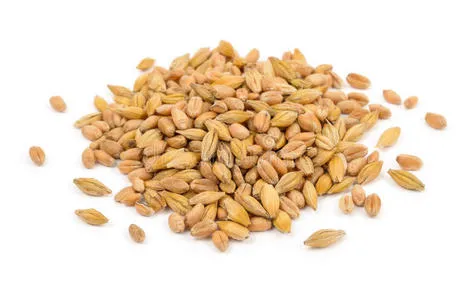
Dic . 29, 2024 03:00 Back to list
Effective Mesotrione Applications for Enhanced Crop Protection and Weed Management Solutions
Understanding Mesotrione A Comprehensive Overview
Mesotrione is a herbicide widely used in agricultural practices to control broadleaf weeds and certain grass species. As a selective herbicide, it primarily targets specific types of weeds without harming desirable crops, especially in maize production. Its development marked a significant advancement in weed management, providing an effective tool for farmers aiming to enhance crop yield while minimizing herbicide-resistant weed populations.
Chemical Composition and Mode of Action
Chemically classified as a triketone, mesotrione operates through the inhibition of the enzyme p-hydroxyphenylpyruvate dioxygenase (HPPD). This enzyme plays a crucial role in the biosynthesis of carotenoids and other essential compounds in plants. When mesotrione is absorbed by the target weeds, it disrupts this metabolic pathway, leading to the yellowing and eventual death of the plants. The selectivity of mesotrione allows it to be safely applied to crops like maize, where it does not significantly affect the plant's growth or health.
Application and Effectiveness
Mesotrione is typically applied pre-emergence or post-emergence, depending on the specific weed management strategy in place. Its effectiveness is most pronounced when applied to young, actively growing weeds. The herbicide provides residual control, meaning it remains active in the soil for extended periods, thus preventing new weed germination even after application.
Farmers appreciate mesotrione for its broad-spectrum efficacy against various weed species, including pigweeds, lambsquarters, and nightshades. Additionally, it is often used in combination with other herbicides to create a synergistic effect, enhancing overall weed control and reducing the likelihood of resistance development.
Environmental Impact and Safety
As with any herbicide, the use of mesotrione warrants careful consideration of environmental impact and safety. Comprehensive studies have shown that when used according to label instructions, mesotrione poses minimal risks to non-target organisms and the environment. Its low toxicity to mammals and beneficial insects makes it a preferred choice among farmers concerned about ecological balance.
mesotrione service

However, users must be aware of potential issues related to runoff and soil persistence. Implementing best management practices, such as buffer zones and proper application timing, can help mitigate these risks. Moreover, farmers are encouraged to monitor soil health and biodiversity to ensure sustainable agricultural practices.
Resistance Management
One of the foremost challenges in modern agriculture is the development of herbicide-resistant weed populations. Mesotrione, while effective, is not exempt from this issue. Therefore, integrated weed management strategies are crucial to prolonging the efficacy of mesotrione and minimizing resistance. This includes rotating herbicides with different modes of action, employing cultural practices such as crop rotation and cover cropping, and utilizing mechanical methods to manage weeds.
Future of Mesotrione in Agriculture
As we look to the future, the role of mesotrione in sustainable agriculture continues to evolve. Ongoing research focuses on optimizing application techniques, increasing its spectrum of control, and evaluating its compatibility with various crop types. Advances in biotechnology may also pave the way for genetically modified crops that are tolerant to mesotrione, thus enhancing its usage without compromising crop yield or health.
Furthermore, the increasing awareness of environmental sustainability will drive the demand for effective herbicides like mesotrione that balance productivity with ecological responsibility. As agricultural practices adapt to meet the challenges posed by climate change and market demands, mesotrione's role could expand, offering innovative solutions for integrated weed management.
Conclusion
In summary, mesotrione stands out as an essential tool in contemporary agricultural practices, particularly for maize production. Its selective action, effectiveness in controlling a wide range of weeds, and relative safety to the environment make it a valuable herbicide. However, responsible usage and integrated management practices are vital to sustaining its benefits and mitigating any potential ecological risks. As research and technology advance, mesotrione will likely continue to play a key role in the future of efficient and sustainable agriculture.
-
Azoxystrobin: Broad-Spectrum Fungicide Solutions
NewsAug.11,2025
-
Best EPA Boscalid: Superior Crop Fungicide for Max Yields
NewsAug.11,2025
-
Best Willowood Imidacloprid: Superior Pest Control Solutions
NewsAug.10,2025
-
Best EPA Boscalid Fungicide: Ultimate Crop Protection
NewsAug.09,2025
-
Cyprodinil Fungicide: Broad-Spectrum Crop Protection
NewsAug.08,2025
-
Tembotrione Herbicide: Advanced 8% OD for Broad Spectrum
NewsAug.07,2025
